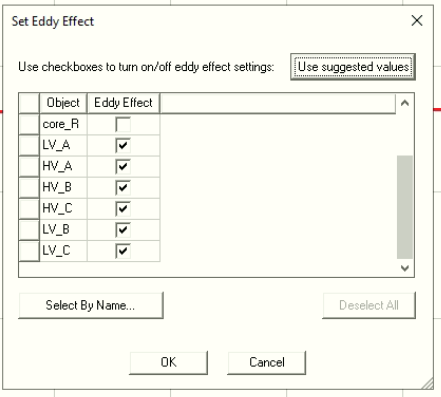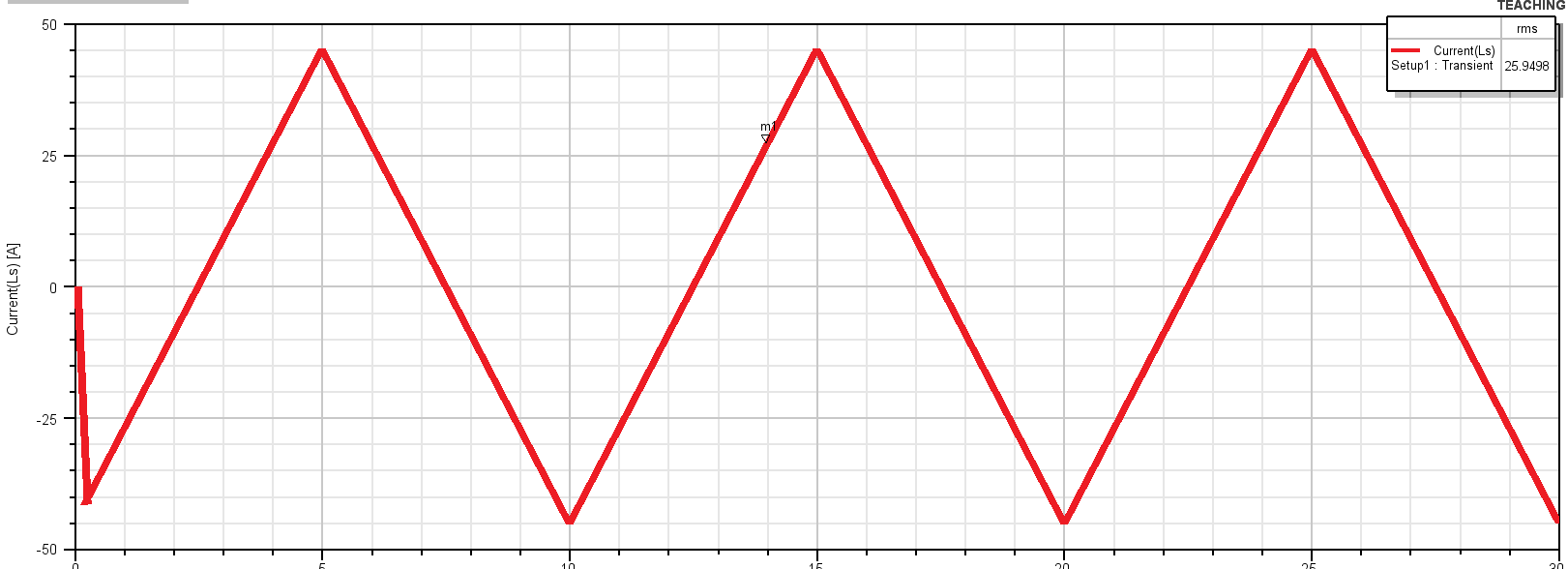-
-
May 23, 2021 at 4:18 pm
Sherin
SubscriberI would like to calculate load loss of 1200Hz transformer of rating 1000kVA. I have included eddy current effect also for all winding as shown below.
May 26, 2021 at 6:28 amicellb1
Ansys EmployeeHi StrandedLossAC is reported when using Litz wire model. StrandedLossAC = StrandedLoss + AC eddy current losses due to proximity effects and skin effects of the litz wire. If you are using stranded type of winding, Maxwell by default turns off eddy effect, and this is also what's required for litz wire model. It could be that under your analysis frequency for litz wire, the extra AC eddy current losses due to proximity effects and skin effects of your litz wire is not obvious.
-
August 8, 2023 at 5:37 am
hungnguyendinhbao
SubscriberExcuse me?
I have 2 questions. You mean Strandedloss is DC loss? and by your explanation, when we use Stranded type, AC eddy current losses is zero, StrandedlossAC = Stranded loss?
I also used Stranded winding and Litz wire model, the switching frequency is 100kHz, current density is 6mm2, RMS current is 26A. The Strandedloss is 2.7W, StrandedlossAC is 54W. Is it true?
May 27, 2021 at 10:02 amSherin
SubscriberOk thank you for your reply.
Viewing 2 reply threads- The topic ‘What is the difference between stranded loss and stranded loss AC in maxwell transient simulation’ is closed to new replies.
Innovation SpaceTrending discussions- Three-Phase Voltage Imbalances in dual stator electric generator
- Link the Circuit to 3D Terminals
- Magnetic Dipole moment calculation
- Integration lines or U Axis Line for circular and rectangular ports
- Core Loss in ANSYS MAXWELL Eddy Current solution
- exporting and importing my Netlist for my external circuit
- Error of Metal Fraction in Icepak Classic.
- The unit of theta in Is*sin(2*pi*fre*Time+theta-2*pi/3)
- 2D transient simulation -torque issue
- Two way coupling for Maxwell and thermal problem
Top Contributors-
4607
-
1510
-
1386
-
1209
-
1021
Top Rated Tags© 2025 Copyright ANSYS, Inc. All rights reserved.
Ansys does not support the usage of unauthorized Ansys software. Please visit www.ansys.com to obtain an official distribution.
-
The Ansys Learning Forum is a public forum. You are prohibited from providing (i) information that is confidential to You, your employer, or any third party, (ii) Personal Data or individually identifiable health information, (iii) any information that is U.S. Government Classified, Controlled Unclassified Information, International Traffic in Arms Regulators (ITAR) or Export Administration Regulators (EAR) controlled or otherwise have been determined by the United States Government or by a foreign government to require protection against unauthorized disclosure for reasons of national security, or (iv) topics or information restricted by the People's Republic of China data protection and privacy laws.














